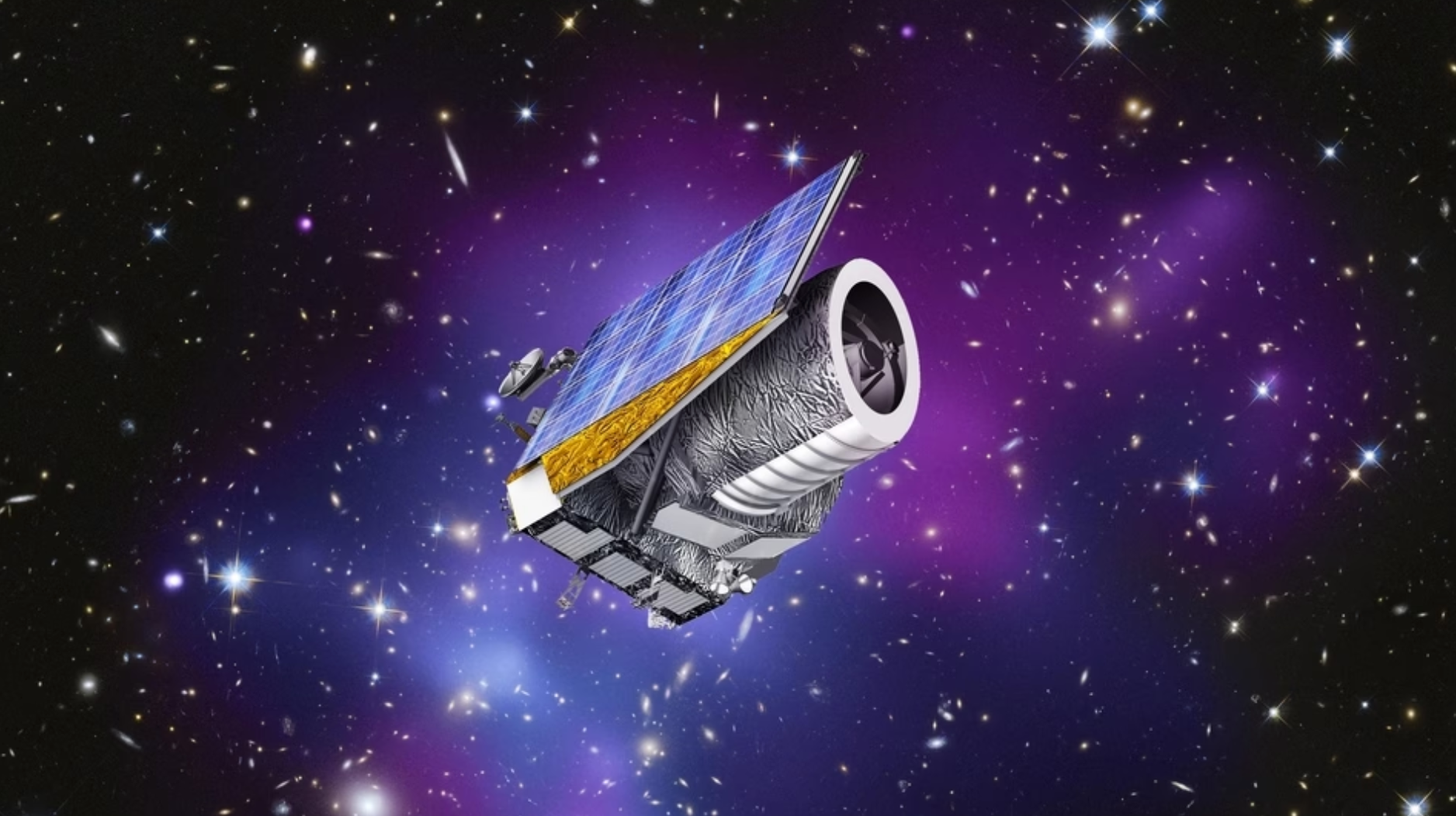The European Space Agency’s (ESA) Euclid spacecraft is primed for launch on a SpaceX Falcon 9 rocket, with liftoff scheduled for 11:11 a.m. Eastern July 1 from Cape Canaveral Space Force Station. The launch is taking place under favorable weather conditions.
Euclid is equipped with a 1.2-meter telescope, a camera operating at visible wavelengths, and a near-infrared spectrometer and photometer. This two-ton spacecraft is set to operate from the Earth-sun L-2 point, similar to the James Webb Space Telescope’s positioning. It is projected to generate the largest and most accurate 3D map of the universe to date.
Astronomers anticipate that Euclid’s observations will shed light on two of the most profound mysteries in cosmology: the nature of dark energy and dark matter. These unseen forces together make up 95% of the universe. Giuseppe Racca, Euclid’s project manager at ESA, described the current knowledge gap as an “embarrassing situation” during a pre-launch briefing on June 23. He stated, “Only 5% of all the universe is made of atoms and particles that we are all made of. All the rest, 95%, is made of other things that we don’t really know”.
Yannick Mellier, an astronomer at the Institut d’Astrophysique de Paris and leader of the Euclid Consortium, expects Euclid to offer decisive insights into the nature of dark energy.
The development of Euclid began a decade ago, led by an industrial team from Thales Alenia Space. The original plan was to launch Euclid on a Soyuz rocket from French Guiana. However, this plan was disrupted when Russia ceased Soyuz operations from the European spaceport following its invasion of Ukraine in February 2022. With no other European launch vehicles available and the debut of Ariane 6 suffering significant delays, ESA faced the possibility of storing the spacecraft for two years or more.
In October 2022, ESA announced its selection of SpaceX to launch Euclid on a Falcon 9 rocket. After conducting studies to confirm Euclid’s compatibility with Falcon 9, the contract was finalized in December. Paolo Musi, Euclid program manager at Thales Alenia Space, stated that initial analysis showed no issues in switching to the Falcon 9, which was verified by subsequent testing. This successful transition has allowed the mission to proceed as planned, without requiring any changes to the hardware.
While NASA is a partner on Euclid, providing infrared detectors for one of its instruments, ESA arranged the Falcon 9 launch directly with SpaceX. The officials did not disclose the cost of the launch vehicle change, citing the commercial nature of the contract with SpaceX. Racca mentioned that ESA had already invested significantly in the Soyuz launch, which resulted in extra costs when that contract was terminated.
The decision to launch from Cape Canaveral rather than Kourou has been described as a “big relief” by ESA officials. This mission, leveraging SpaceX’s technological capabilities and the scientific potential of the Euclid spacecraft, is set to bring the mysteries of the universe one step closer to humanity’s understanding.
































































